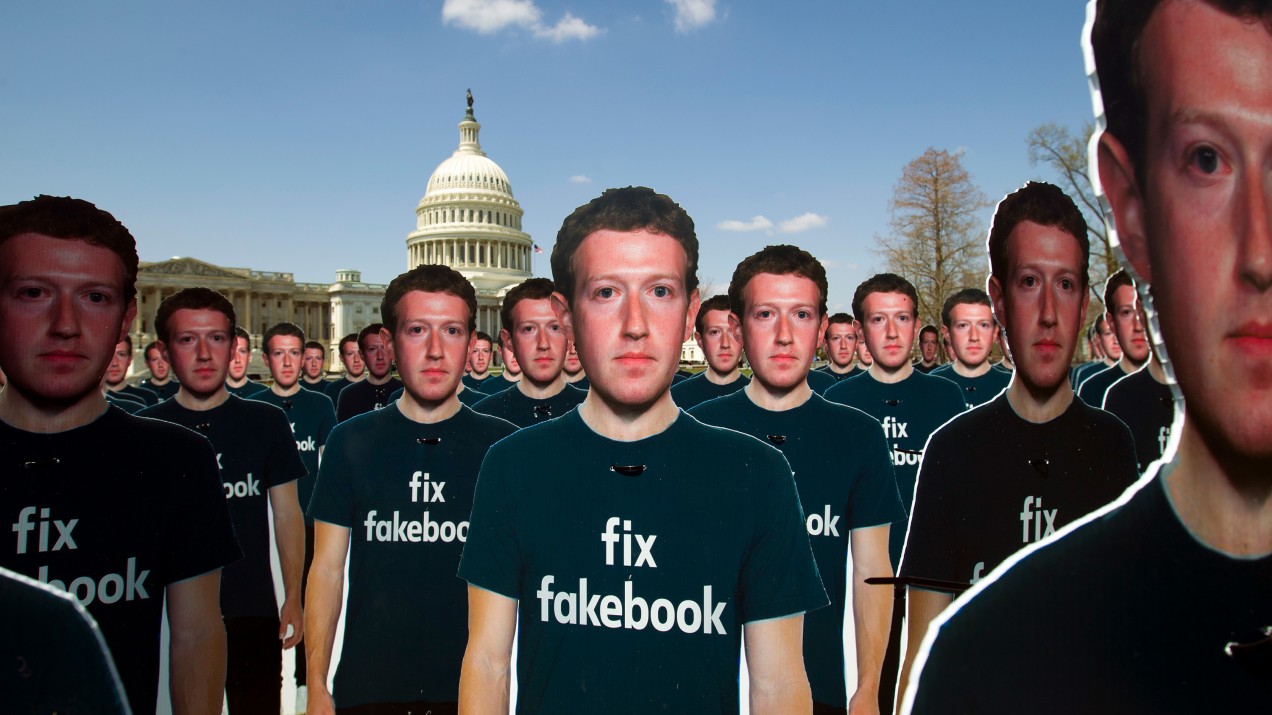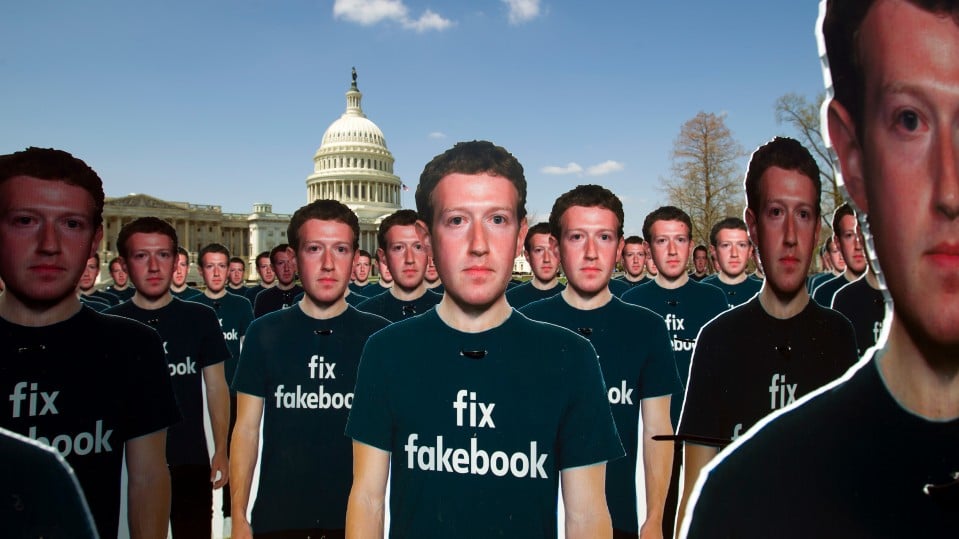

Election 2020
2019 is the year tech finally started to deal with 2016
Internet companies have been slow to solve their problems. Now everyone else is starting to do it for them.

Donald Trump’s unexpected victory in November 2016 was a turning point not just in politics, but also in technology. The narrative about its role in society began to change quickly, and Big Tech took blame for eroding democracy. Today the US is looking ahead to another presidential election, but three years on from the last one, it’s hard to see how much progress has been made.
It’s true that the problems themselves have become more clear. We know now that Russia’s Internet Research Agency used an army of trolls to try to sway the election. (A Senate intelligence committee concluded as much.) Facebook and Twitter are cracking down on propaganda accounts. And Facebook at least has concrete plans for fighting election disinformation this time around.
But so much remains unresolved. We know that Russia used those bots, but it’s still unclear whether they actually changed people’s minds (in fact, studies have suggested that for all the fears of fake news, tech-mediated persuasion might not be that effective). Disinformation still seems to be on the rise worldwide. Security provider CloudFlare dropped 8chan, a notorious online hot spot for violent extremists, after it was connected to shootings, but now the site is back as 8kun.
Nobody expected these big, thorny questions of free speech and platform governance to be solved quickly. But for all that has happened between 2016 and now, it’s only in the past year that real policies have started being built out, and even then they are often deployed with what seems like little thought.
Nowhere is this more apparent than in the ongoing fight over political advertising. Tech platforms may be similar to each other in how slowly they’ve reacted, but they are dealing with these problems differently. Facebook refuses to cast judgment on political advertising, meaning that its team of fact-checkers will not review anything a candidate says in a paid advertisement. That’s why the Trump campaign could place an ad that lied about Joe Biden’s connection to Ukraine and why Elizabeth Warren could goad Mark Zuckerberg by buying an intentionally false ad.
Facebook has faced plenty of pushback for this stance. But Zuckerberg, in claiming to defend the ideals of free expression, continues to paint it as a choice between accepting lies in political advertising and, as he said in a Georgetown speech, living in a world where “you can only post things that tech companies judge to be 100% true.”
This is a false choice, as shown by Google, which has banned microtargeting and “false claims” in political advertising. Twitter, meanwhile—with some pointed dunking of Facebook—has completely banned political advertising, including issue ads.
Yet those approaches don’t quite seem to be the answer either. The question of what qualifies as an “issue ad” is something of a slippery slope, and a full ban on political advertising is likely to hurt challengers in smaller races. These companies may not even have the infrastructure to keep their own promises: a political advertising ban in Washington state created a disaster. Facebook has been trying to make amends by promising transparency in its ads, but the database meant to provide it crashed before the UK election.
The first primaries of 2020 are two months away, and we are barely closer to understanding what these companies are doing. It seems they are not ready. As a result, everyone else seemed to realize the truth of the adage “If you want something done right, you’ve got to do it yourself.”
So we have Elizabeth Warren making the push to break up dominant companies a big part of her platform. Congress, meanwhile, held a hearing on Section 230, a piece of internet legislation that protects technology companies from being sued for what people post. (House Speaker Nancy Pelosi has called Section 230 a “gift” to tech companies that they weren’t treating with respect.)
Labor issues at tech companies have become a major theme too. Fed up with poor working conditions, Facebook moderators are speaking out about mental health struggles and suing for trauma. Google contractors in Pittsburgh have unionized. Google’s alleged union-busting activities have resulted in a lawsuit and federal investigation. Uber and Lyft drivers organized to help pass a California law that would classify them as employees. Instacart workers went on strike in November.
The 2016 election made it clear just how big the problems are, and the looming 2020 election highlights how little is being done. The result is that people are “beginning to question the narrative of technical inevitability and question the idea that technical progress that helps large tech companies is in fact social progress,” says Meredith Whittaker of New York University’s AI Now Institute. One of the conclusions from the Institute’s annual year-end report (released in early December) is that community groups, workers, and researchers—and not corporate ethics policies or anything the companies are doing—are responsible for stepping up oversight of technology.
Increasingly, everyone is realizing that companies are not going to change by themselves, and that it’ll take a presidential campaign or a big worker movement to make things happen. Or as Shona Clarkson, an organizer with the activist group Gig Workers Rising that helped pass the California law, put it: “These companies are afraid, and that just shows us that when drivers come together to fight back, it is powerful and it is influential.” So in 2020, the big question for tech companies is: Will you change on your own, or will you wait for everyone else to force your hand?